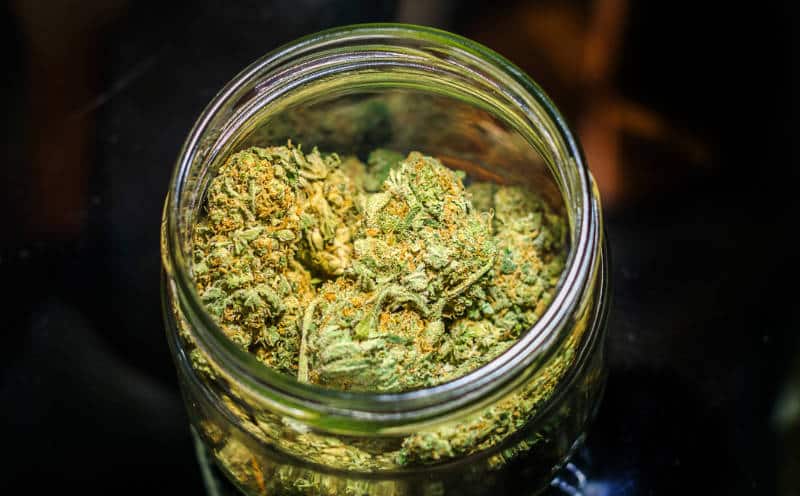Cannabis and Mental Health: Managing Anxiety and Depression
Anxiety and depression are common mental health conditions that affect millions of people worldwide. While traditional treatments exist, some individuals seek alternative approaches to managing their symptoms. In recent years, cannabis has gained attention for its potential role in supporting mental well-being, particularly in relation to anxiety and depression. In this article, we will explore the relationship between cannabis and mental health, focusing on how it may aid in managing anxiety and depression.
Understanding Anxiety and Depression:
Anxiety and depression are distinct mental health disorders, but they often coexist and share certain symptoms. Anxiety is characterized by excessive worry, fear, and a sense of unease. Depression, on the other hand, involves persistent sadness, loss of interest, and a decrease in energy and motivation. Both conditions can significantly impact daily functioning and quality of life.
The Endocannabinoid System and Mental Health:
The endocannabinoid system (ECS) is a complex network of receptors found throughout the body, including the brain. It plays a crucial role in regulating various physiological processes, including mood, stress response, and emotional well-being. The cannabinoids found in cannabis, such as THC (tetrahydrocannabinol) and CBD (cannabidiol), interact with the ECS and may influence mental health symptoms.
Managing Anxiety with Cannabis:
1. CBD-Dominant Strains: CBD, a non-intoxicating cannabinoid, has gained attention for its potential anxiolytic (anti-anxiety) properties. CBD-dominant strains or CBD products may help reduce anxiety symptoms without the psychoactive effects associated with THC. However, it’s important to note that individual responses to CBD can vary, and finding the right dosage and strain is crucial.
2. Balanced THC:CBD Strains: Some individuals find that a balanced THC:CBD ratio is effective in managing anxiety. While THC can induce relaxation, higher doses may exacerbate anxiety in some individuals. A balanced ratio allows for potential therapeutic benefits while minimizing the risk of increased anxiety.
3. Microdosing: Microdosing involves consuming very low doses of cannabis to achieve subtle effects. This approach may be beneficial for individuals with anxiety, as it allows for symptom management without overwhelming psychoactive effects. Microdosing can help promote a sense of calm and relaxation.
Managing Depression with Cannabis:
1. THC-Dominant Strains: THC, the psychoactive compound in cannabis, has been associated with mood elevation and potential antidepressant effects. Some individuals find that THC-dominant strains can provide temporary relief from depressive symptoms. However, it’s essential to consider individual sensitivity to THC and potential side effects such as cognitive impairment or increased anxiety.
2. Terpene Profiles: Terpenes, the aromatic compounds found in cannabis, can influence the effects of different strains. Some terpenes, such as limonene and linalool, have been linked to mood-enhancing and potentially antidepressant properties. Exploring strains rich in these terpenes may be worth considering for individuals managing depression.
3. Consider CBD: While CBD is often associated with anxiety management, it also holds potential in alleviating symptoms of depression. CBD’s interaction with the ECS and its ability to modulate serotonin receptors may contribute to its antidepressant effects.
Important Considerations and Recommendations:
1. Personal Response: Each person’s response to cannabis is unique. It’s essential to be aware of individual sensitivities, as cannabis may affect individuals differently. Start with low doses and monitor how cannabis impacts your symptoms and overall well-being.
2. Professional Guidance: If considering cannabis for managing mental health symptoms, it’s advisable to consult with a healthcare professional who is knowledgeable about cannabis therapeutics. They can provide guidance on strains, dosages, potential interactions, and help determine the best approach for your specific needs.
3. Complementary Therapies: Cannabis should not be seen as a standalone treatment for anxiety or depression. It can be integrated as part of a comprehensive approach that includes therapy, lifestyle modifications, self-care practices, and other evidence-based treatments.
4. Responsible Consumption: Practice responsible cannabis consumption by adhering to legal regulations, starting with low doses, and avoiding excessive or prolonged use. Regularly assess the impact of cannabis on your mental health symptoms and adjust as necessary.
Cannabis has shown potential in aiding the management of anxiety and depression, offering an alternative approach for individuals seeking relief from their symptoms. CBD-dominant or balanced THC:CBD strains may be beneficial for anxiety, while THC-dominant strains and specific terpene profiles may offer potential mood-elevating effects for depression. However, individual responses to cannabis can vary, and it is important to exercise caution, consult with healthcare professionals, and adopt a comprehensive approach to mental health management. Cannabis should be viewed as a complementary tool alongside evidence-based therapies and lifestyle modifications. By approaching cannabis use responsibly and seeking personalized guidance, individuals may find support in their journey towards improved mental well-being.
Please follow all Oklahoma laws when obtaining cannabis by using a legitimate OMMA registered dispensary, and please consult a doctor before starting a cannabis regiment.





